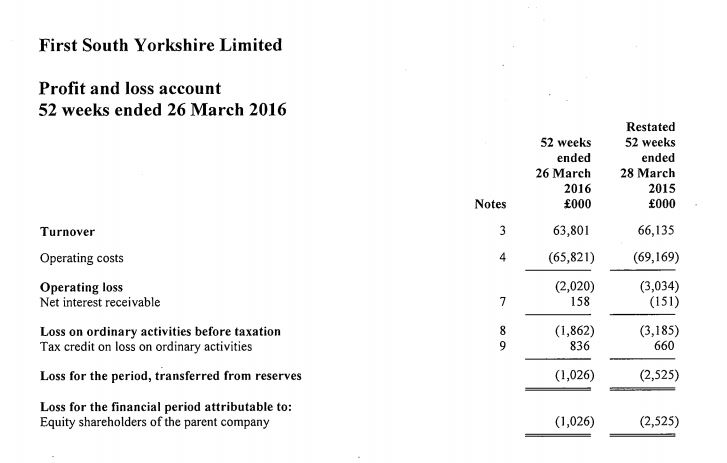tbtc
Veteran Member
Eventually I'm going to get around to looking at fleet which is up to the age of 2003 (53), which I'm personally expecting First to withdraw nearly all of that by the end of 2020
I find these lists really interesting - I'm not a "vehicles" person (routes, timetables, maps etc, but I struggle to keep up with vehicle numbers), so getting some kind of "bigger picture" on a list like this is welcome.
I'd suspect that South Yorkshire will come off badly against such criteria though - a lot of Tridents/ ALX400s/ B7Ls from around 2002 will need replacing in the next few years - partly because First seem to invest in the fleet here every six years or so (B10BLEs in 1998ish, Commonwealth Games B7Ls in 2002, lots go Geminis in 2007/8, Streetlites in 2014).
First South Yorkshire Ltd did not expect this:

Your vague comment means that I don't understand what you didn't expect about the FSY figures (expected them to be better or expected them to be worse?).
But they look about right - costs down and revenue down because the local operations are seeing reductions in PVR due to the "partnerships".
Questions for 2017/2018s will be:
Does the running costs (to get buses from Sheffield/ Doncaster to operate Rotherham town services) count for much against the obvious savings from closing Midland Road? And how much longer will some of those routes be viable (given the need to get buses and drivers from Sheffield/ Doncaster - especially given the inevitable breakdowns/ crashes where replacements will take longer to arrive)
Was Midland Road's revenue a fair reflection of the cost of upgrading/ painting all of the vehicles for far flung operations? i.e. did the recent losses include a hidden subsidy to other First divisions who got "mates rates" for the work done at Midland Road?

